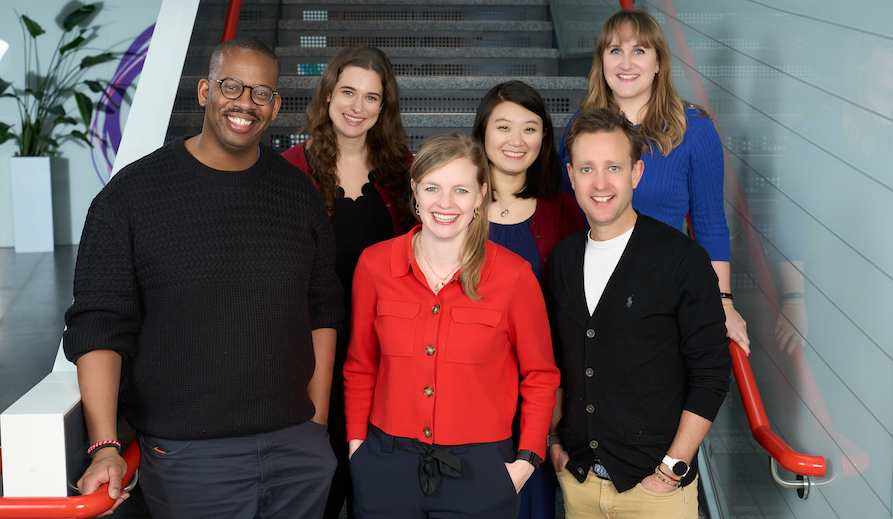UK-based Ada Ventures is an unusual VC. Instead of just talking about SaaS or AI, it hunts down founders addressing inclusivity and diversity. Instead of confusing LPs with this methodology, it’s attracted them, thus hitting the $80 million mark for the final close of its second fund (it reached $44.7 million as its first close […]
© 2024 TechCrunch. All rights reserved. For personal use only.
UK-based Ada Ventures is an unusual VC. Instead of just talking about SaaS or AI, it hunts down founders addressing inclusivity and diversity. Instead of confusing LPs with this methodology, it’s attracted them, thus hitting the $80 million mark for the final close of its second fund (it reached $44.7 million as its first close in October last year).
LPs in this fund include British Business Bank, The University Of Edinburgh, Big Society Capital, Legal & General Capital, Atomico, the The Export and Investment Fund of Denmark (EIFO) and Molten Ventures.
Additionally, founder investors have backed this new fund, including Taavet Hinrikus (founder of Wise), and Illusian (the family office of Ilkka Paananen, co-founder and CEO of Supercell).
With the second fund, Ada says it will invest between £250,000 and £1.5 million in pre-seed and seed stage startups, with a “significant amount” allocated for follow-ons. So far, 12 investments have been made from the second fund. These will concentrate on climate equity, economic empowerment and healthy ageing.
Companies in the second fund so far include Alive, BlackBear Glowb, Greenwork, Materials Nexus, MultiOmic, Boldr and JunoBio
Launched in 2019, Ada Ventures has also made it is mission to pay attention to the diversity of the founding teams it backs. To that end, it claims its portfolio is 14x more diverse than the average UK VC in terms of gender and race/ethnicity. However, take that with a pinch of salt, as that’s its own survey data.
How does it go about hunting down diverse founding teams, a task that so many other VCs are seemingly unable to engage with?
The short answer is a diverse Scout and Angel network. The Ada Scout program comprises nearly 100 scouts and a 20-strong cohort of “Ada Angels” who each have access to an investment pot of up to £50,000. Ada claims 30% of the investments from Fund I and Fund II were sourced this way.
Co-founder and CEO Check Warner told me: “That Scout and angel program is made up of people who’ve never been angel investors before, who are new to venture, and they’re very diverse. People are often leaders in diverse communities. That’s produced 10 times the number of all female teams than industry benchmarks.”
Ada also has program for founders to bring in emergency childcare if they need it, provided by a startup called Bubble.
Warner said: “We have launched this European-first offering for founders around, giving them all backup emergency childcare. So if your nursery says you need to pick up your kids and you can’t, we allow them to use this backup and we pay for that. It’s the first time that a VC has done that and we think that’s crazy. We think by offering inclusive support to founders, we’re going to help them be better business leaders.”
Since diversity is such a core tenet of the Ada offering, I asked Warner what she thought about the recent controversy involving Hussein Kanji of Hoxton Ventures.
Asked by Sifted why Hoxton still didn’t have a female partner, he gave a long and winding answer which amounted to there being too few female partners worth poaching in Europe and US-based ones were better.
Warner retorted: “There are 350+ fantastic female VC partners in Europe. There are literally 1000s of associates and principals and I think we all as leaders need to have collective understanding of our responsibility to frankly attract the best women, men… anyone into the industry. And I think anything that risks not doing that sets us all back as an industry. And I think that those comments may have been taken out of context.”
Did she think Hoxton has got a leadership problem itself?: “I think every leader of every VC fund needs to do whatever we can to attract the best talent in the industry. There are lots of great opportunities and venture. It’s going to grow in the next few years. And I think we all just need to make sure that we make it as attractive as possible to work in VC for anyone.”

Leave a Reply